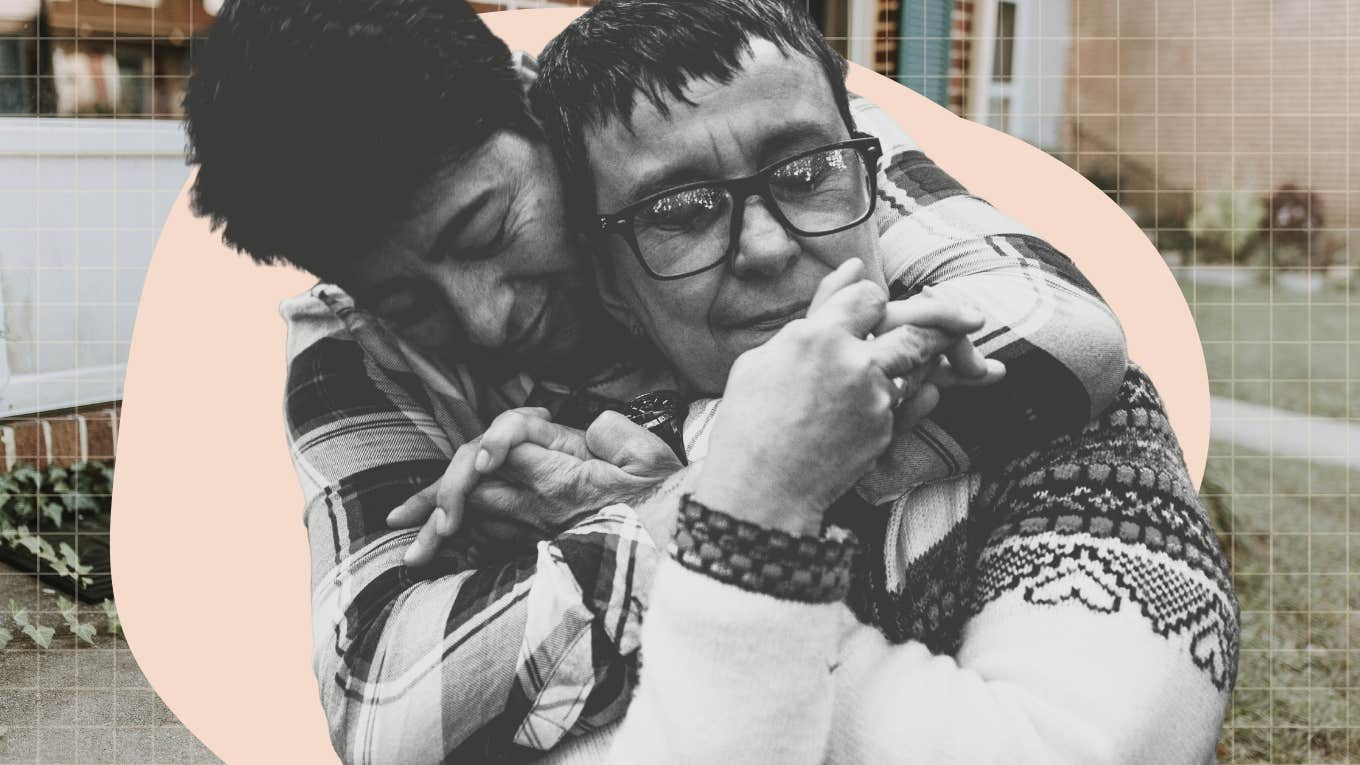Coming Out At 50 Dramatically Cured My Chronic Pain
I had no idea hiding my sexuality was increasing my pain and damaging my mental health.
 Winnie Bruce, Pablo Merchan | Canva
Winnie Bruce, Pablo Merchan | Canva When I finally found the courage to admit I was gay, I had lived with constant chronic pain for over a decade. I hadn’t considered the possibility that my chronic condition and waning mental health might somehow be intertwined with the part of me I’d hidden away since childhood.
Coming out at 50 was freeing and exciting, but I didn’t anticipate my decision’s remarkable effect on my overall physical and mental health.
A decade after coming out, I couldn’t be more grateful for the relief that living authentically brought me.
Living a lie didn’t take away the emptiness I felt.
I’ve known I was different since childhood but never felt the acceptance of those around me to talk about the things I was feeling. When I realized my same-sex attraction, I felt ashamed and didn’t have the courage to admit I was gay. In college, I got involved with an evangelical student group, hoping that religion might course-correct my longing to be with a woman.
It took me 30 years to realize that living a lie only hurt my physical and emotional well-being.
In my early 20s, as an attempt to fit in, I resigned myself to living as a straight woman. I married a nice man, had three children, and got deeply involved with our evangelical church, but I couldn’t get rid of the deep emptiness inside me. I did my best to be a good Christian wife but couldn’t keep myself from imagining what it would be like to be with a woman.
My life felt fractured, and my mental health suffered as I gravitated in and out of depression.
And then the physical pain began.
My body and my marriage were deteriorating.
My chronic pain started innocently enough with a sore neck but progressed to more severe symptoms like frequent migraines, arm numbness, and joint pain. Eventually, I was diagnosed with osteoarthritis and degenerative disc disease, and the pain continued to intensify until I was nearly disabled.
My marriage and my pain spiraled in tandem. My doctor prescribed Fentanyl patches with oral Fentanyl lollipops for breakthrough pain, and I spent most of my days in bed. After several months of heavy medication, I was referred to a gifted pain specialist, underwent several procedures, and finally began experiencing some relief from my raging pain.
There was no relief, however, from the deterioration of my marriage.
We tried speaking with our pastor and seeing a therapist, but no amount of counseling changed the truth that I was gay. I felt trapped and without hope. My depression worsened, and my pain fluctuated with the rhythms of my rollercoaster emotions.
Denying my sexuality became a heavy burden.
As my three kids grew, I often told them I would love them no matter who they were. I desperately wanted them to know they could live authentically, but I wasn’t brave enough to do that myself. The magnitude of my decision to deny my sexuality finally became an emotional weight I couldn’t carry.
One day, while my kids were at school, I found myself curled up on my closet floor, holding a bottle of pills, contemplating ending my life. The irony that I was in my closet was lost on me at the time. In a moment of clarity, I thought of my children and knew I didn’t want to leave them with a legacy of loss. I prayed for the courage to break free and admit to others that I was gay.
I decided to come out of the closet that day, and despite my fear, I chose to live authentically. I had no idea if I could hold a job or support myself financially. I wasn’t sure I could manage my chronic pain alone, but I knew my life depended on me finally exposing the truth of my sexuality.
I found a talented therapist who helped me work through the process of telling my family I was gay. Divorcing my husband and coming out was both challenging and liberating, and the relief I felt at not having to hide was intoxicating.
I found an excellent job, and my confidence grew with each challenge I navigated. I felt seen and validated for the first time in my life, and my newfound authenticity was exhilarating to experience. Curiously, as my new life unfolded, I noticed that my pain and depression were receding.
I didn’t realize that coming out at 50 would be good for my health.
Coming out and living authentically significantly impacted my health. I no longer need medication for depression, and my overall pain level has decreased. My doctor gradually weaned me off Fentanyl patches, and my pain is now managed with a lower-strength medication.
I not only provided for myself financially but thrived in a high-level healthcare management position for 11 years before my retirement in 2021.
And best of all, I fell in love with a fantastic woman, and we were married in 2014.
Coming out at 50 was indeed good for my health. Since validating myself as a gay woman more than a decade ago, I have watched my emotional and physical well-being soar.
Kim Kelly Stamp (she/her) is a writer and speaker who writes about authenticity, retirement, relationships, and life on the road.

